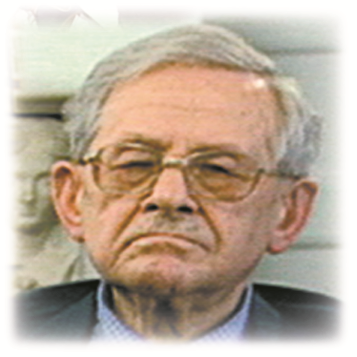Liberty Matters
Captured by Whom and for What Purpose?

John Blundell points to Buchanan and Tullock’s own argument about why there is no American IEA, which refers to London’s unique intellectual and cultural characteristics, compared to New York (commercial/artistic) and Boston (academic/scientific), let alone D.C. (policy). Because London is the cultural center of all three intellectual classes, the IEA couldn't become a tool just for the political class. I don’t find this argument completely convincing, though I do believe it has some intuitive merit. John uses the Cato Institute as counterexample, with its ability as a think tank to think outside the box of its geographic cluster and intellectual culture, and he also points to the spread of think tanks that Atlas has helped create. Again, while I find Blundell’s evidence intuitively compelling, I don’t find it convincing. And ironically -- and this is indeed ironic because of the role that John played at IEA, as well as IHS and Atlas – I am unconvinced because I believe John underestimates how unique IEA and Arthur Seldon was. Cato might not be captured by special-interest groups, as Milton Friedman warned, but there is no doubt it is part of the Washington, D.C. intellectual culture. It is a policy wonk shop, not a research center. I don’t say that with any normative assessment, but as a positive analysis of the situation. The state-level think tanks that Atlas has formed are also policy wonk shops, but tied into a local level. Again, what they aren’t are economic research centers.
A pivotal monograph for IEA, which I would contend sets it apart, is W. H. Hutt’s Politically Impossible?(1971, 2010.[16] The argument in that monograph -- which is that economists should never direct their messages with the eye to what is politically possible, but always to what is scientifically true -- permeates IEA works. This is why IEA was able to think the unthinkable and to encourage scholars to do so. IEA and Seldon carved out a unique niche in the intellectual structure of production. They did not reside at the highest stage of production, nor did they reside at the lowest (if the lowest is considered selling economic policy to politicians). They resided instead at the higher stages of production where the raw scholarly material of the Austrian, Chicago, and Virginia schools of economics is translated into useable material for dissemination to secondhand dealers in ideas -- teachers, journalists, and intellectuals. They were the first-level translators. The United States never developed a sustainable clone of IEA, as the equilibrium tendency in the market for charitable funds seemed to always pull a group more and more toward being a policy wonk shop in the hope for relevance. FEE -- the original market-oriented think tank -- comes the closest to the IEA, but doesn’t actually fit because the focus has rarely been on translating cutting-edge scientific research in order to pose an intellectual challenge to the conventional wisdom. FEE is farther down the structure of production, focusing instead on the elementary principles of economics.
In the United States the kind of conversation that the IEA and Seldon generated is not being generated by Cato and the state-level network of free-market policy wonk shops; instead, it is being generated in economic blogosphere, for example at Marginal Revolution, where cutting-edge academic work is getting a first translation. Also see Project Syndicate and Vox. One of the great innovations along these lines is Russ Roberts’s podcast series, EconTalk. The conversation in all these media is more scientific/scholarly and yet more in line with Hutt- and Seldon-style pursuit of truth. Policy relevance is not the first principle guiding their work. It is hard to stay focused on this kind of work when located amid a culture of policy concerns, or financial concerns, or artistic concerns. The Buchanan-and-Tullock intuition as to what can go wrong isn’t that far off the mark, and the fact that London had/has this great diversity of coexisting intellectual cultures does make it unique. But the more unique aspect I would argue was the attitude of Seldon as he guided the research and publication projects of IEA. There is such a thing as pivotal people at pivotal times -- and Arthur Seldon was one of those people. I do believe he left such an imprint that the folks who have followed in his footsteps have preserved his attitude and purpose, namely, to be the first-level translators. That continues to make IEA unique in the worldwide network of free-market think tanks.
Endnotes
[16] W. H. Hutt, Politically Impossible? An Essay on the Supposed Electoral Obstacles Impeding the Translation of Economic Analysis into Policy (1971, 21 Oct 2010). About the book: <https://iea.org.uk/publications/research/politically-impossible>. PDF download: <https://iea.org.uk/sites/default/files/publications/files/upldbook523pdf.pdf>.
Copyright and Fair Use Statement
“Liberty Matters” is the copyright of Liberty Fund, Inc. This material is put on line to further the educational goals of Liberty Fund, Inc. These essays and responses may be quoted and otherwise used under “fair use” provisions for educational and academic purposes. To reprint these essays in course booklets requires the prior permission of Liberty Fund, Inc. Please contact oll@libertyfund.org if you have any questions.